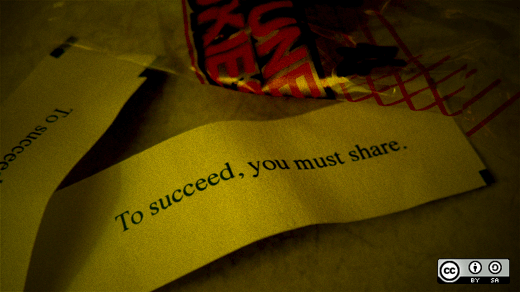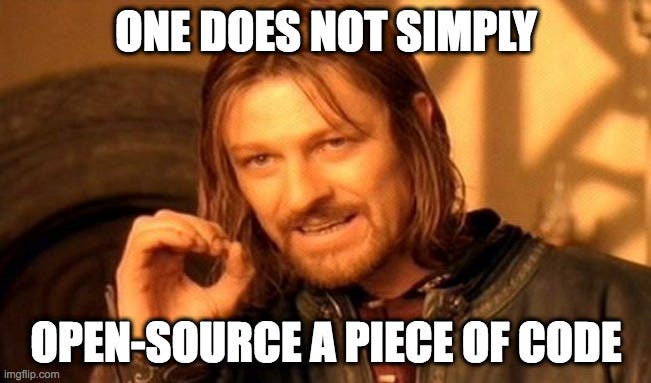Building for the future of open source money
Tales of our vision and journey towards open source
In the grand universe of digital innovation, open monetary systems, the open sharing of ideas, and open source code form a dynamic triad of progress. Bitcoin, as an ultimate form of open monetary system, represents more than just a new form of currency; it embodies a decentralized vision where authority and trust are established not by central institutions, but through transparent protocols and alignment of incentives. This system thrives on the open sharing of ideas - a global dialogue where diverse minds intersect, challenge, and inspire each other. It's an intellectual exchange that fuels the engine of breakthroughs, pioneering new routes in the wilderness of possibilities. At the core of it, all lies open source code - the tangible expression of these ideas.
Bitcoin did not arise from a vacuum. Rather, it was the culmination of numerous pioneering ideas that were germinated, nurtured, and disseminated in the open forums of the past. The foundational stones of Bitcoin were laid by concepts such as David Chaum's eCash, for instance, which brought the notion of anonymous electronic money transactions to the forefront. Adam Back's Hashcash introduced the concept of proof-of-work, a key ingredient in the prevention of email spam and denial-of-service attacks. Wei Dai's B-Money proposed a decentralized system for the creation and transfer of digital assets. And Nick Szabo's Bit Gold illustrated a mechanism for a decentralized digital store of value. Each of these ideas, openly shared and debated in various forums, contributed to the architecture of what would become Bitcoin. The idea was first shared on a humble mailing list, absorbing the wisdom of its predecessors and transforming it into a novel creation. This seed of an idea, nourished by the spirit of open collaboration and the genius of past innovations, sprouted into an open monetary system rooted in transparency and decentralization.
Bitcoin’s gift was more than just transparency and decentralization - it also brought us self-custody. The concept of self-custody, both in terms of money and data, is a fundamental pillar on which we are building the future. With Bitcoin, individuals are granted the power to become their own bank, and to hold and control their financial assets without the need for intermediaries. This shift does not merely redistribute power; it redefines it, marking a departure from traditional banking systems and ubiquitous financial surveillance, towards financial autonomy and personal sovereignty. Self-custody extends beyond finance into the realm of data, a commodity growing in value in our increasingly surveilled world. With the rise of decentralized technologies, individuals are empowered to control their own information, decide who has access to it, and to shape their digital identities. This capacity for self-custody is a potent symbol of individual autonomy and security in the digital age. It reflects a world where individuals are not just passive consumers but active participants, equipped with the tools and knowledge to navigate, and indeed shape, the digital currents of our time.
Today, more than 14 years since the idea of Bitcoin was published, the importance of open systems and collaboration is more of a necessity than ever. Governments across the world have boundless ambitions to control the flow of information, money, and ideas. But we, the people of Bitcoin, need no convincing of that. It is in our nature to build (and argue) in the open. We have open proposal systems - BIP, BLIP; we collaborate on specifications - BOLT, WebBTC, LSP spec, and create new open protocols for open sharing of information - Nostr. The only thing we’re not open to is expanding the block size.
Open systems require open tools
We don’t build in to open because it's easy, we do it because it's the only way. Ability to be in control of your data, to know what is running on your computers, and most importantly, what and who is operating your money is key to escaping the tyranny of big tech data siloes, surveillance capitalism, and failed monetary systems.
Bitcoin is open-source money. And so should be the tools and projects built around and on top of it. Building a new monetary system is just too important not to be built in the open. And tons of companies and projects have already proved that it is not only possible but actually beneficial to do so. From amazing companies like Breez and Alby, trailblazing on Lightning network; hardware wizards like BitBox and Trezor, providing open source hardware wallets; projects like lnbits and btcpayserver, building open solutions for merchants and builders everywhere; Galoy, offering solutions for Bitcoin communities around the world; to communities like bolt.fun and bitcoin.design which provide space for collaboration, education and sharing of ideas. We can’t possibly list all of them, the ecosystem is way too vast by now. (but we still tried - check out lightning landscape)
bolt.observer started as a monitoring tool where the SaaS approach makes a lot of sense. We spent a lot of time talking to our users, getting to know their problems and how they are tackling them, and gathering feedback from existing businesses on the most needed solutions and best practices out there.
As time progressed we moved from simple reachability monitoring to providing liquidity alerts to our customers. That marked the beginning of our path towards building our automation engine driven by workflows, enabling users to streamline their liquidity management with LiquidOps. However for these tools to work users needed to share their private data with us. Despite having fine controls in our agent over how much and how precise data to share with us, the fact was they still had to share some of it to make the tools usable. And we decided we’re gonna do something about that.
In the coming months, we will be open-sourcing LiquidOps, enabling people to self-host our tooling and stay in charge of their own data. The decision was simultaneously hard and easy - it will take some of our very limited resources to make the transition from SaaS to open source, but it's a sacrifice we’re more than willing to make in order to enable people more sovereignty and privacy. It is the Bitcoin way and we’re excited to do it. We believe that the lightning network is the bedrock of a new financial infrastructure built on top of bitcoin, and as such a critical part of it. And we are committed to doing as much as possible to help make that a reality.
With LiquidOps open-sourced and our agent-based architecture, companies will be able to deploy lightning node automation even in the most secure environments. The architecture empowers deeper isolation of nodes and credentials never leaving them, while keeping the user interface easily accessible to employees. We will keep improving our plugin system to enable you to expand and customize your lightning automation.
While you are waiting for the open-source version of LiquidOps you are welcome to test existing functionality on our platform, check out Lightning Vault - secure lightning credential storage or build something cool with our go-runes library.
To stay up to date with new developments and news follow us on Twitter, Linkedin or Telegram.


